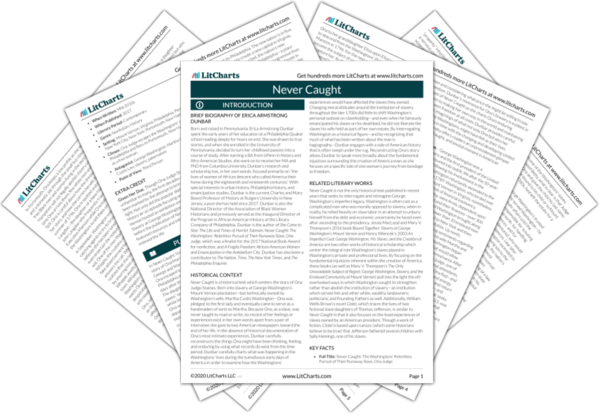As Ona and Whipple’s tense, fraught meeting progresses, Whipple tries to essentially con Ona into returning to slavery. Ona, however, has come too far to turn back now—she has been deceived, and now she uses deceit to get herself out of a difficult situation. Ona is still fighting radically for her freedom and refusing to believe that anyone but her has her own best interests at heart.
